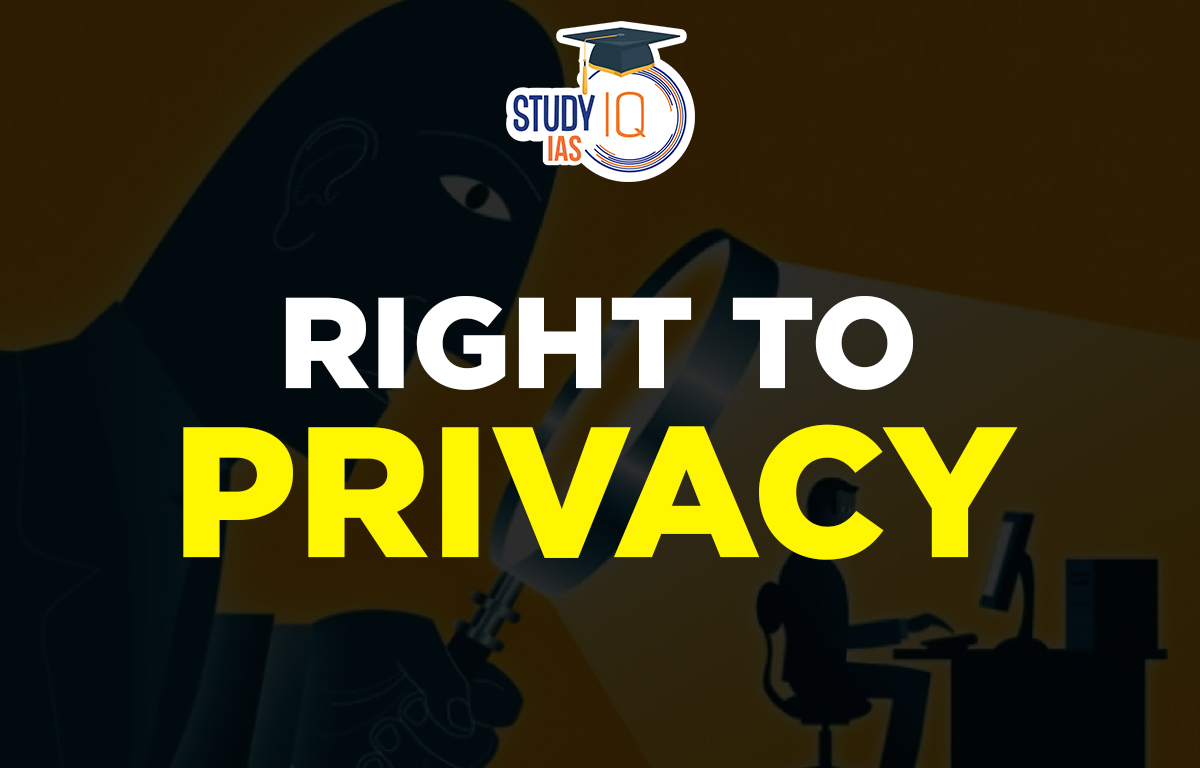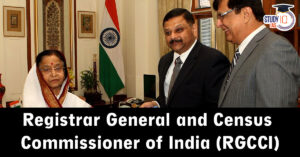Table of Contents
Right to Privacy
Respect for privacy is regarded as a Fundamental Right of humans in many international treaties. It is essential for maintaining human dignity and is one of the fundamental components of a democracy. It upholds one’s rights as well as those of other people. Privacy as a concept is not new. The divisions in ancient Greece were called Polis and Oikos, or the public or political world and the private or familial sphere, respectively. The “right” to privacy, on the other hand, is a relatively contemporary concept.
The concepts of privacy and the Right to Privacy are difficult to grasp. Privacy often relates to modern information and communication technologies and is based on the principle of natural rights. The right to privacy refers to our ability to protect the space around us, which includes all we own, such as our bodies, homes, assets, ideas, feelings, secrets, identities, etc.
The Supreme Court has opted to read Article 21 in conjunction with the Universal Declaration of Human Rights in order to broaden its application. The Constitution of India does not expressly support the right to privacy as a core libertarian ideal. In Kharak Singh v. the State of U.P. (1962), when the surveillance of suspects was at issue, the right to privacy came to light.
History of Right to Privacy
The right to privacy has grown from a shield against government interference to a protection of personal information from attacks by both the state and private individuals. With advances in technology, issues like cyber attacks and identity theft have emerged, posing new challenges for data security.
The first significant Indian case regarding privacy was M. P. Sharma v. Satish Chandra (1954), focusing on unlawful searches. Although privacy wasn’t initially a fundamental right, courts recognized that personal liberty can’t be fully enjoyed without protection from invasions into private life. Indian courts have often drawn on American law for guidance.
Justice Subba Rao, in his dissent in Kharak Singh(1963), emphasized that the right to life includes living with dignity, which relates to privacy. In Mr. X v. Hospital Z (1998), the court noted that the right to privacy isn’t absolute and can be limited for public interest. The case R. Rajagopal v. State of Tamil Nadu(1995) ruled that unauthorized publication of someone’s life violates their privacy, highlighting the need for responsible use of freedom of speech.
In State of Maharashtra v. Madhukar Narayan Mardikar (1991), the Supreme Court affirmed that everyone has the right to privacy, regardless of their background. The landmark decision in Justice K.S. Puttaswamy v. Union of India (2017) established that the right to privacy is part of the right to life and personal liberty under Article 21 of the Constitution. It stressed the need to protect personal data, especially biometric information, from unauthorized access, including by the government. This decision clarified the status of privacy as a fundamental right.
| Supreme Court Cases | |
| Kharak Singh vs State of Uttar Pradesh | 1963 |
| R. Rajagopal vs State of Tamil Nadu | 1994 |
| PUCL vs Union of India | 1997 |
| Naz Foundation vs Government of NCT of Delhi | 2009 |
| Aadhaar judgment | 2018 |
| Justice K.S. Puttaswamy (Retd.) vs Union of India | 2017 |
Right to Privacy in India
The Right to Privacy is one of these rights since the right to life in Article 21 is flexibly defined to cover all parts of a person’s existence that make their life more meaningful. The Supreme Court ruled that Regulation 236 of the UP Police Regulations breached the Constitution because it violated Article 21 of the Indian Constitution in Kharak Singh v. the State of UP (1962), which was the first case to address this issue of the right to privacy.
The Court ruled that the right to privacy is intertwined with the right to preserve individual life and personal liberty. In its ruling, the court linked individual freedom with privacy.
In Maneka Gandhi v. UOI (1978), the court established the triple test for any law restricting individual freedom such as:
- It must outline a process;
- The approach must pass the test of one or more Article 19-granted fundamental rights that might be applicable in a particular circumstance.
- It must pass Article 14 scrutiny.
Right to Privacy Article 21
The Article 21 of the Indian Constitution mentions the Right to life and the Right to personal liberty. Everyone has the right to life and the right to personal liberty, both citizens and noncitizens, according to this article. These two rights cannot be taken away from anyone by the state unless certain conditions are met, as outlined by the Indian Penal Code. Under the K.S. Puttaswamy case, SC held that the right to privacy was also included in the right to life and liberty.
Right to Privacy SC Judgements
Although Article 21 does not mention the right to privacy directly, the Supreme Court of India has expanded the scope of Article 21 in a number of cases. There are other such SC decisions, the most significant are listed below.
AK Gopalan vs the State of UP 1950
In this case, the petitioner argued that the police search and seizure on his property violated his right to property under Article 19 of the Constitution. However, the court dismissed his privacy claim, saying the police action didn’t stop him from using his property. The court also pointed out that police have the right to search and seize if they have “reasonable cause.”
Kharak Singh vs the State of UP 1963
In this case, the petitioner said that the police’s late-night visits to his home violated his right to travel freely under Article 19 of the Indian Constitution. He also complained about the police following him. The court agreed that the late-night visits violated his right to live freely and with dignity. However, it ruled that the right to privacy is not a fundamental right, so monitoring his activities was not against the law.
Justice K.S. Puttaswamy vs Union of India 2017
The Supreme Court of India unanimously decided during the hearing of a suit that questioned the constitutional legality of the Aadhar-based biometric system that the right to privacy is a fundamental right protected by the Constitution.
The court widened the scope of Article 21 and declared that the right to privacy is also included in the right to life and liberty as guaranteed by that provision. The right to privacy so immediately became a fundamental right following the judgement because Article 21 is covered by Part III of the Indian Constitution, which addresses fundamental rights. Since that time, India has seen the right to privacy as a Fundamental Right of the person.
Right to Privacy Supreme Court’s Aadhar Judgement
Residents have the right to obtain an Aadhaar number under the Aadhaar Act by enrolling and providing biometric and demographic data. The Aadhaar Act’s provisions were scrutinised by the Supreme Court to see if they violated the right to privacy, which the Supreme Court recognised as a fundamental right in 2017. It’s important to note that many services offered by both the government and commercial companies needed users to link their Aadhaar numbers for authentication, effectively making getting an Aadhaar number necessary for the great majority of people.
Because of this, the real dispute was whether this was a legal exception rather than whether it violated someone’s right to privacy. Due to their failure to adhere to the aforementioned proportionality requirement, the Supreme Court invalidated or reduced some provisions of the Aadhaar Act. Aside from these clauses, the Supreme Court determined that the Aadhaar Act functions as a reasonable exemption to the right to privacy since it is appropriate and serves a legitimate state aim.
Right to Privacy Related Government Initiatives
The government has taken steps by enacting laws for the protection of privacy of the Indian citizens which are discussed below:
Information Technology Act of 2000
The Information Technology Act of 2000 is a law in India that governs electronic commerce, digital signatures, and the protection of sensitive information such as personal data. The act was enacted with the goal of regulating the use of electronic communication and digital signatures and providing legal recognition to transactions carried out through electronic means. It offers a defence against some computer system data breaches. It has security measures to stop unauthorised access to computers, computer systems, and the data kept on them.
Personal Data Protection Bill 2019
To establish a Data Protection Authority of India for these purposes and matters relating to an individual’s personal data, as well as to provide for the protection of individuals’ privacy in connection to their personal data. Considering the suggestions made by the B N Srikrishna Committee (2018).
Limitations on the Right to Privacy in India
In India, many laws protect the right to privacy, but there are some limitations. The Indian Penal Code, of 1860 allows for restrictions on this right to ensure national security, public order, and morality, or in cases like judicial contempt and defamation.
The Supreme Court has stated that the right to privacy is not absolute and can be limited for public welfare and national security. It may also be restricted to prevent crimes.
Also, the government can conduct surveillance, intercept communications, or collect biometric data, especially in matters involving foreign individuals or groups important for national security.
Individuals may also choose to waive their right to privacy when they share personal information with companies for services or contracts.
Right to Privacy vs Right to be Forgotten
Everyone has the right to request that any personally identifiable information that is publicly accessible be deleted from databases, websites, search engines, and other public platforms once it is no longer required or relevant.
The Right to be Forgotten (RTBF) rose to prominence as a result of the Court of Justice of the European Union’s (“CJEU”) decision in the Google Spain case in 2014. The RTBF was a component of the greater right to privacy in the Indian context, according to the Supreme Court in Puttaswamy v. Union of India, 2017. The RTBF is derived, in part, from the right to privacy guaranteed by Article 21 and the right to dignity guaranteed by Article 14 of Indian Constitution.
Conclusion
The Right to Privacy was recognized as a fundamental right in India through the landmark Aadhaar judgement in 2017, where the Supreme Court stated it falls under Article 21. This right ensures individuals can make private choices and protects their personal data from exploitation, including the right to be forgotten.
To support these rights, the Central Government passed the Digital Personal Data Protection Act in 2023. This law aims to prevent the misuse of personal data by online businesses, similar to the European Union’s General Data Protection Regulation (GDPR), which has been in place since April 2016. These protections are important, and efforts must be made to implement them effectively. As privacy issues grow in the internet age, government regulations must keep up with new challenges.
Right to Privacy UPSC
The Right to Freedom should be carefully examined by Parliament and the Supreme Court, and a means for balancing the conflicting rights to privacy and freedom of expression should be developed. In the digital age, data is a valuable resource that shouldn’t be unregulated. This situation indicates that India’s time for a robust data protection regime has come.
Article 21 states that a person’s right to privacy is essential to their right to personal freedom. Rights to privacy are not unqualified. They are subject to reasonable restrictions for the defence of crimes, the welfare of the weak, morality, or the defence of other human rights.


 9th Schedule of Indian Constitution: His...
9th Schedule of Indian Constitution: His...
 Mechanisms to Combat Judicial Corruption...
Mechanisms to Combat Judicial Corruption...
 Registrar General and Census Commissione...
Registrar General and Census Commissione...





















